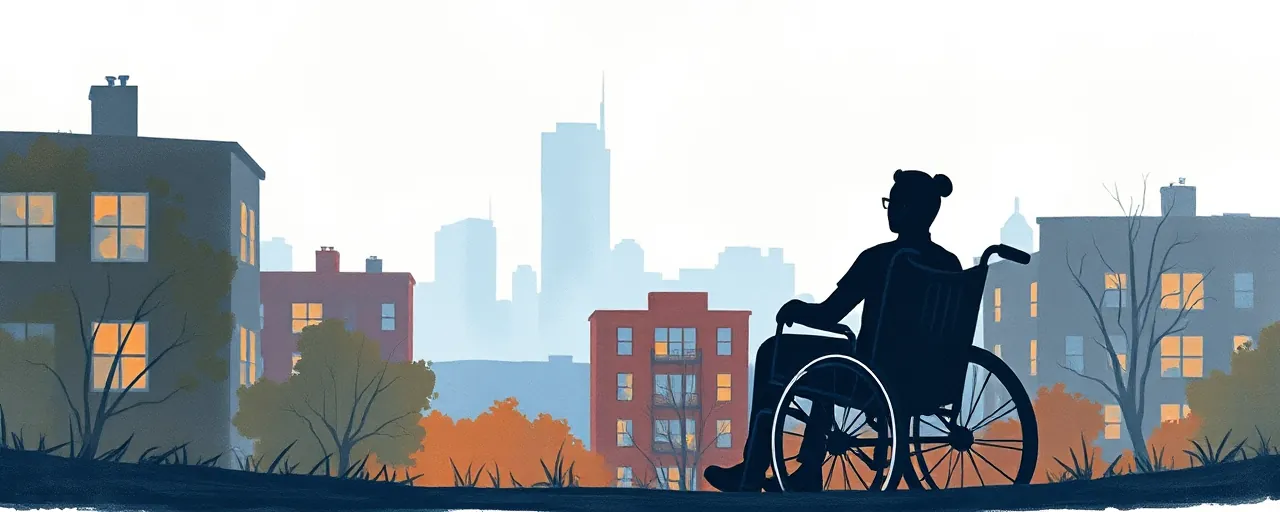A Stand Against Injustice
Across New York, the dream of a safe, affordable home feels closer than ever for thousands, thanks to a fierce push against housing discrimination. Governor Kathy Hochul announced this week that the state has handed out over $320,000 in the past year to victims who dared to speak up against landlords and co-op boards wielding prejudice like a weapon. It’s not just money, it’s a message: no one should fear rejection or humiliation when seeking a place to live.
This isn’t abstract policy wonkery; it’s real people, real lives. Picture a wheelchair user finally getting a ramp installed after years of being dismissed, or a family using rental subsidies no longer turned away because of outdated biases. New York’s Division of Human Rights isn’t just tallying complaints, they’re rewriting the rules, forcing housing providers to ditch discriminatory habits and embrace accountability. As landmarks like One World Trade Center glow blue for Fair Housing Month, the state celebrates not just the 57th anniversary of the Fair Housing Act but a renewed vow to make equity tangible.
Yet, this victory lands amid a national landscape growing bleaker by the day. With federal funding for fair housing enforcement slashed and diversity initiatives under attack, New York’s defiance stands out. It’s a lifeline for those battered by a system that too often shrugs at injustice, proving that state action can fill the void when Washington falters.
The Front Lines of Equity
The numbers tell a story of resolve. In 2025 alone, $137,000 has already reached victims, building on last year’s haul. Beyond cash, settlements are dismantling barriers brick by brick. A housing provider caught rejecting tenants with subsidies? They’re now paying $7,000 and offering free brokerage services to right the wrong. A co-op that sneered at a man’s age and heritage? They’re forking over $15,000 and posting fair housing rights for all to see. These aren’t one-offs; they’re part of a broader reckoning.
New York’s Human Rights Law doesn’t mess around, outpacing the federal Fair Housing Act with protections against bias based on everything from disability to lawful income sources. When a property manager ignored a wheelchair user’s pleas for access, the state didn’t just tsk-tsk, it mandated a ramp and training to ensure it never happens again. This is what enforcement looks like when it’s backed by spine, not just statute.
Contrast that with the naysayers who claim regulation strangles the market. They’d have you believe landlords are helpless victims of red tape, not gatekeepers who’ve long profited from exclusion. History disproves their whining; the Fair Housing Act of 1968 and its 1988 disability amendments didn’t crash the housing sector, they opened it up. New York’s tougher stance isn’t radical, it’s righteous, rooted in decades of evidence that unchecked bias festers without intervention.
Still, the fight’s far from won. Disability complaints dominate fair housing cases nationwide, making up over half the total each year. A HUD settlement in March 2025 forced 5,300 southern apartments to add ramps and grab bars, a stark reminder that accessibility isn’t optional. New York’s proactive steps, like last year’s extended statute of limitations for filing claims, show what’s possible when leaders prioritize people over profits.
Then there’s the rental subsidy crisis. With emergency funds drying up, 60,000 households face eviction as rents soar past $1,400 a month, far beyond what Section 8 vouchers cover. New York’s ban on source-of-income discrimination, cemented in 2024’s insurance reforms, is a lifeline, but it’s not enough without federal muscle. The state’s proving what’s possible, yet it’s battling a tide of neglect from a White House more focused on dismantling progress than building it.
A Legacy Worth Defending
New York’s not just reacting; it’s setting a standard. The Division of Human Rights’ conference in the Bronx this week, “We All Belong Here,” isn’t some feel-good photo op. It’s a battle cry, marking 80 years of pushing equity forward. Workshops will tackle segregation’s scars and the stubborn legacy of unequal access, issues the state’s real estate pros now face in mandatory training thanks to 2023’s legislative wins.
This matters because housing isn’t just shelter, it’s dignity. When a landlord turns away a voucher holder or a co-op snubs a family for their roots, it’s not a market quirk, it’s a moral failing. New York’s response, from cash payouts to policy shifts, is a blueprint for a nation losing its way. As federal enforcement stumbles, states like this one are proving justice doesn’t wait for permission.
